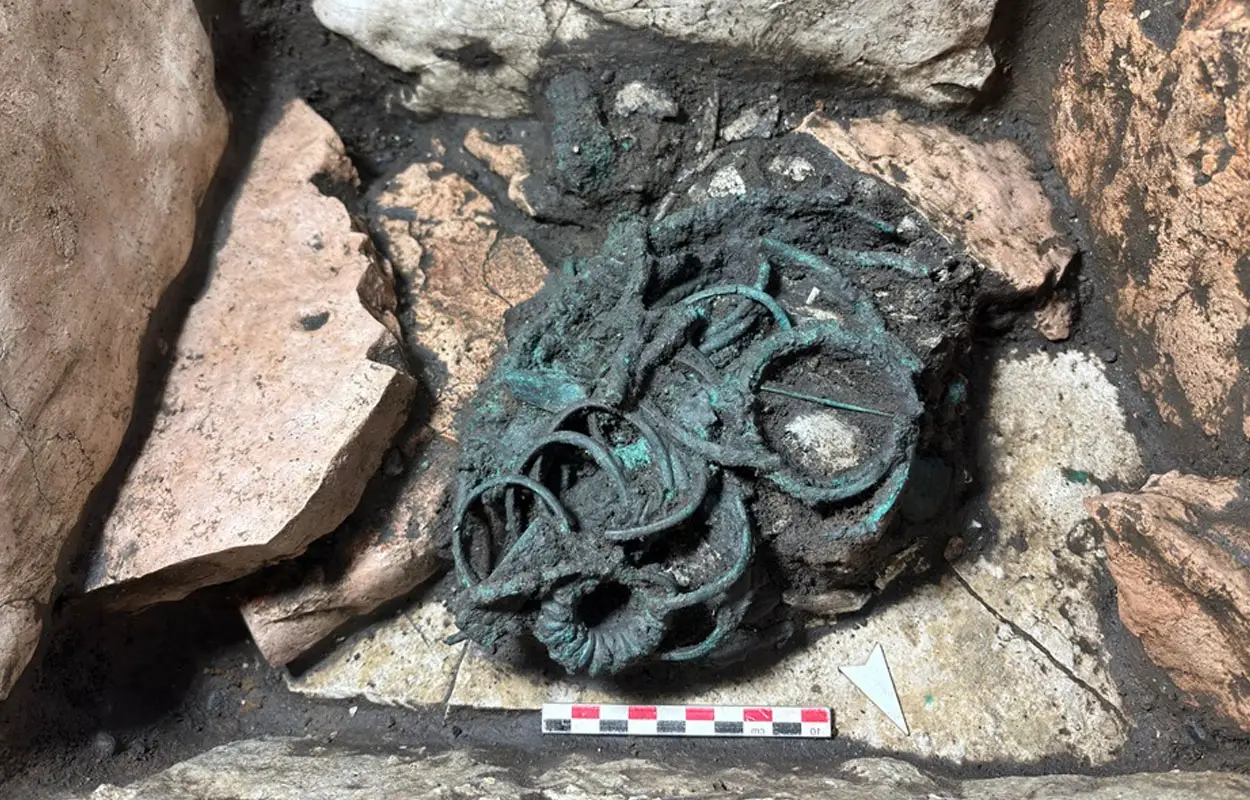Archaeologists in Trento, Italy, have discovered a monumental pre-Roman necropolis containing high-status tombs and associated grave goods.
The discovery was made during restoration works of a building in the Santa Croce area by researchers from the Archaeological Heritage Office of the UMSt Superintendence for Cultural Heritage and Activities of the Autonomous Province of Trento.
According to a press statement from the Provincial Council’s Press Office, more than 200 tombs have been discovered beneath layers of Roman and medieval material, at a depth of eight metres below the current street level.

Experts suggest that the necropolis dates to between the 9th and 6th century BC during the early Iron Age. At the time, the region was inhabited by a confederation of Alpine tribes known as the Rhaetians, whose language and culture were closely related to the Etruscans.
“The Iron Age is a period of profound transformations from a historical-cultural point of view throughout the Mediterranean, in the Alpine arc and beyond the Alps. The great civilisations of the Etruscans, Phoenicians, Greeks and Celts flourished. These are also the times of the first Olympics which are traditionally dated to 776 BC and the foundation of Rome in 753 BC,” said superintendent Franco Marzatico.

A unique aspect of the necropolis is its layout as a monumental palimpsest, featuring vertically positioned funerary steles that mark the western edge of a stone chamber covered by a tumulus, where a dense concentration of satellite tombs developed over time.
High status grave goods in the tombs serve as crucial indicators of social identity, roles, and status. Notably, metal artefacts—including weapons and finely crafted ornaments with amber and glass paste inlays, pointing to extensive cultural influences and connections with Italic regions.
Header Image Credit : Provincia Autonoma di Trento
Sources : Provincial Council’s Press Office





